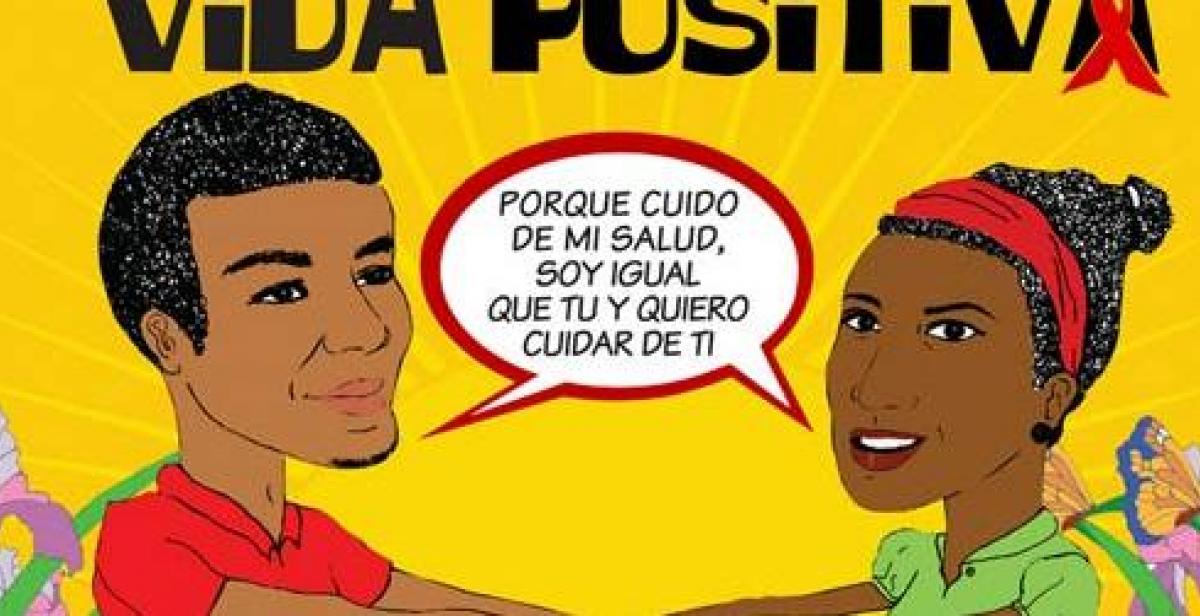Pope Benedict XVI’s comments that the use of condoms might be justified in certain circumstances to prevent the spread of AIDS[1] continue to provoke strong reactions - warmly welcomed by those helping people affected by HIV and many Catholic commentators[2], but forcefully criticised by others.
This is no abstract theological debate: an estimated 15 million people in low and middle income countries are living with HIV and in need of treatment, according to the UN’s latest figures. Treatment, care, support, and prevention of HIV remains a burning priority, particularly for poorer countries.
And behind the statistics are the voices of people living with HIV. We must listen to them. One thing that becomes quickly apparent when you do is the degree to which deep-seated fears and stigma are major problems in the spread of HIV, often ensuring that those who need help do not receive it.
A Progressio colleague recently interviewed Maha, a woman supported by one of our programmes whose husband had been too afraid to tell her that he was HIV positive when they married – and as a result she also became infected. She told us: “I told my husband that I was HIV positive…he asked me how…I said ‘from you’…I knew there was no other way”.
In our official response to Pope Benedict’s recent remarks we cited the story of Maria, a Zimbabwean woman who left her husband because he was violent towards her. She became a sex worker when she could find no other means of supporting her family. Maria faces a daily risk of HIV infection.
For the many people who live with HIV, and who come from a position of faith, clear, accurate and compassionate support from their religious leaders is clearly very important. So it is helpful that Pope Benedict is speaking about HIV in clear and frank language. The Catholic Church position has seemed unclear: on the one hand, it is unarguably one of the largest providers of support to people living with HIV worldwide, with tireless efforts from many clergy, religious orders, and lay workers. On the other, its position on HIV prevention (particularly the role of condoms) has been seen by many as confusing and lacking in understanding.
The core principle that Pope Benedict discusses in his interview with Peter Seeward, and that Vatican officials have expanded upon during the past week is clear: does a sexual act represent a threat to another person’s life? If so, the Pope is completely consistent with earlier Catholic teaching in insisting that abstinence and faithfulness are the “moral” solutions. But if these are not being practised, then he sees it as a better choice (a “first step” in Benedict’s words) to use a condom and take responsibility for the life of a sexual partner than not to do so.
Arguably, you could have made this case anyway from existing Catholic teaching. But many in the Catholic Church have bravely tried to do so in recent years and been strongly attacked as a consequence. Pope Benedict has addressed the issue head on, and made clear that saving lives comes first.
To be totally clear, these are not comments on contraception, but on condom use when there is a risk of HIV transmission. In other ways too, there is no change: the Pope underlines that he sees abstinence and faithfulness as the most effective ways to prevent transmission of HIV; that when sex becomes “banal” and cheap the breakdown in fidelity can make the spread of HIV more likely. But there is a crucial next step in his argument. If abstinence and faithfulness are not being followed, then responsibility should still be taken for the life of a sexual partner.
It would certainly be good for “official” teaching to now be brought forward. The Pope’s comments don’t have this status as such, coming as they do from an informal interview, and there are different situations where greater clarity on church teaching would be welcome.
He particularly quoted in his interview the example of prostitution – so he’s speaking directly to Maria’s situation. But Maha’s story is a reminder that the risk of transmission can be very real in apparently faithful relationships, which he did not speak to directly, although the Pope’s interviewer Peter Seewald certainly believes that the Pope was making a general rather than a specific point: "The Pope indicates that, beyond the single case, there are further cases where one can imagine that condom use is a step towards a responsible approach to sexuality in this area to avoid further infection," he said this week. If saving lives and preventing transmission is the right thing to do, then Maha’s situation – and many others which were not directly addressed - also deserve a compassionate response.
We now have a golden opportunity to have a responsible, mature discussion about how we work together, whether Catholic or not, to save lives, to prevent the spread of HIV and provide care and support for those affected. Pope Benedict has shown true leadership by sharing his own views with clarity and compassion.
[1] Published this week in Peter Seewald’s book “The Light of the World”
[2]See for example Austen Ivereigh’s article in the Tablet
--
Tim Aldred is Progressio's Advocacy Manager.



